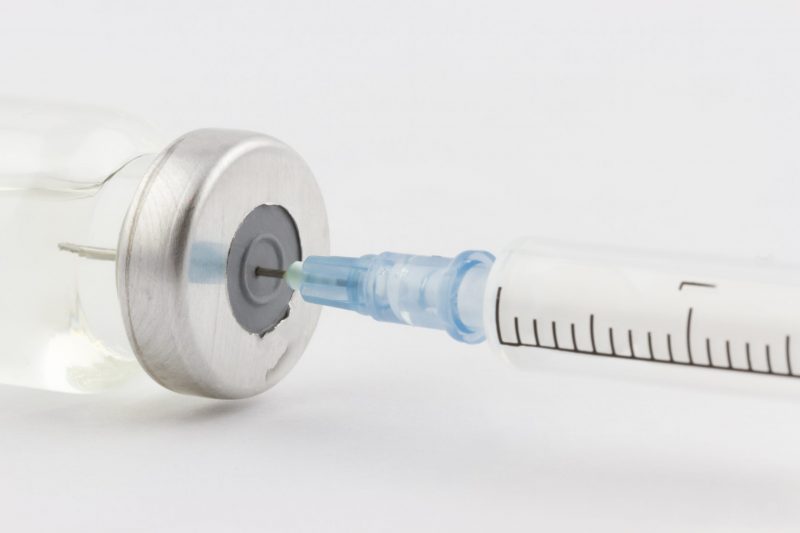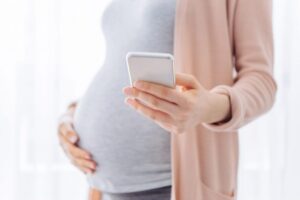Diminishing Ovarian Reserve – Can You Still Have a Baby?
Every little girl is born with all the eggs she will ever have in her life. These eggs are her ovarian reserve. Nearly every month after she reaches puberty, one of those eggs will mature and she will ovulate. If she doesn’t get pregnant, she will have her menstrual period. This natural process goes on until she reaches menopause, although as she gets older, she may not ovulate every month and will start skipping periods.

Diminishing or diminished ovarian reserve means the quantity and/or quality of a woman’s eggs is low enough to cause fertility problems. It’s an increasingly common problem as women delay marriage and childbirth instead of getting pregnant in their early 20s or younger, like our mothers and grandmothers did. What causes it? Can you still get pregnant?
Causes of Diminished Ovarian Reserve
The primary cause of diminished ovarian reserve is a woman’s age. Over time, the number and quality of your eggs declines, and this happens to all women. Although a woman only ovulates approximately 500 eggs in her lifetime, the process of egg loss is ongoing with hundred or thousands of eggs being lost every month. Every woman loses eggs—it’s natural. Also, as women age, their eggs become damaged over time. If a woman ovulates a damaged egg, she’s less likely to get pregnant, and her chances of having a miscarriage are higher.Women over 35 are more likely to have diminished ovarian reserve than younger women. Other common causes of diminished ovarian reserve are smoking, an X chromosome abnormality, cancer treatments with radiation or certain kinds of chemotherapy, and surgery which removes part or all of an ovary. Your reproductive endocrinologist will send you for blood tests to measure your day-three follicle stimulating hormone (FSH) level or anti-mullarian hormone (AMH) level and may also perform an ultrasound to count the small follicles that are visible in order to determine your ovarian reserve.
Fertility Treatment and Your Eggs
If you’re told you have diminished ovarian reserve, your fertility specialist will work with both you and your partner and recommend a treatment plan specific to your fertility issues. Some women with diminished ovarian reserve may be able to get pregnant without IVF, but not nearly as often as women who have normal ovarian reserve. IVF with your own eggs may be an option, depending on the number and quality of your eggs. In an IVF cycle, you are given medications to stimulate you to produce more eggs than you normally would but women with diminished ovarian reserve often produce fewer eggs than those with normal ovarian reserve. The highest quality eggs are then fertilized in the laboratory. The resulting embryos are inspected for quality before one or two are transferred to your uterus.If you don’t respond to ovarian stimulation, or IVF with your own eggs is not successful, egg donation can make it possible for you to carry and bear a baby. Donor eggs are donated by young women, and the success rate of IVF with donor eggs is as high as 50 percent or better. Egg donation is not for everyone, and both you and your partner should receive counseling before you make a decision. There are emotional and financial implications to any fertility treatment, and even more to using donor eggs. See a reproductive endocrinologist to find out what your options are.
Ready for a Fertility Workup?
If you’re ready to pursue IVF treatment, WIN Fertility can help. WINFertility’s Nurse Care Managers or professionally-trained Patient Specialists can help you find an excellent reproductive endocrinologist in your area and get discounted treatment packages and financing options.WINFertility provides
lower than market-rate Treatment and Medication Bundles which combine medical services for a single IVF treatment
and medications at a discounted “pay-as-you-go” price
saving you up to 40% off the total cost of your treatment cycle. The bundle is tailored for your specific treatment plan, and you only pay for the treatment you need, unlike traditional multi-cycle discount plans in which you pay for up to 6 attempts that you may never need in order to receive a discount. For those patients who think they may need an additional IVF attempt to become pregnant, the
WINFertility 2nd Chance IVF Refund Program helps control costs, maximizes your chance of success and minimizes your risk of overpaying.Are you ready to take the next step? Visit
www.WINFertility.com or call 1-855-705-4483 (4IVF.)
 Diminishing or diminished ovarian reserve means the quantity and/or quality of a woman’s eggs is low enough to cause fertility problems. It’s an increasingly common problem as women delay marriage and childbirth instead of getting pregnant in their early 20s or younger, like our mothers and grandmothers did. What causes it? Can you still get pregnant?
Diminishing or diminished ovarian reserve means the quantity and/or quality of a woman’s eggs is low enough to cause fertility problems. It’s an increasingly common problem as women delay marriage and childbirth instead of getting pregnant in their early 20s or younger, like our mothers and grandmothers did. What causes it? Can you still get pregnant?


